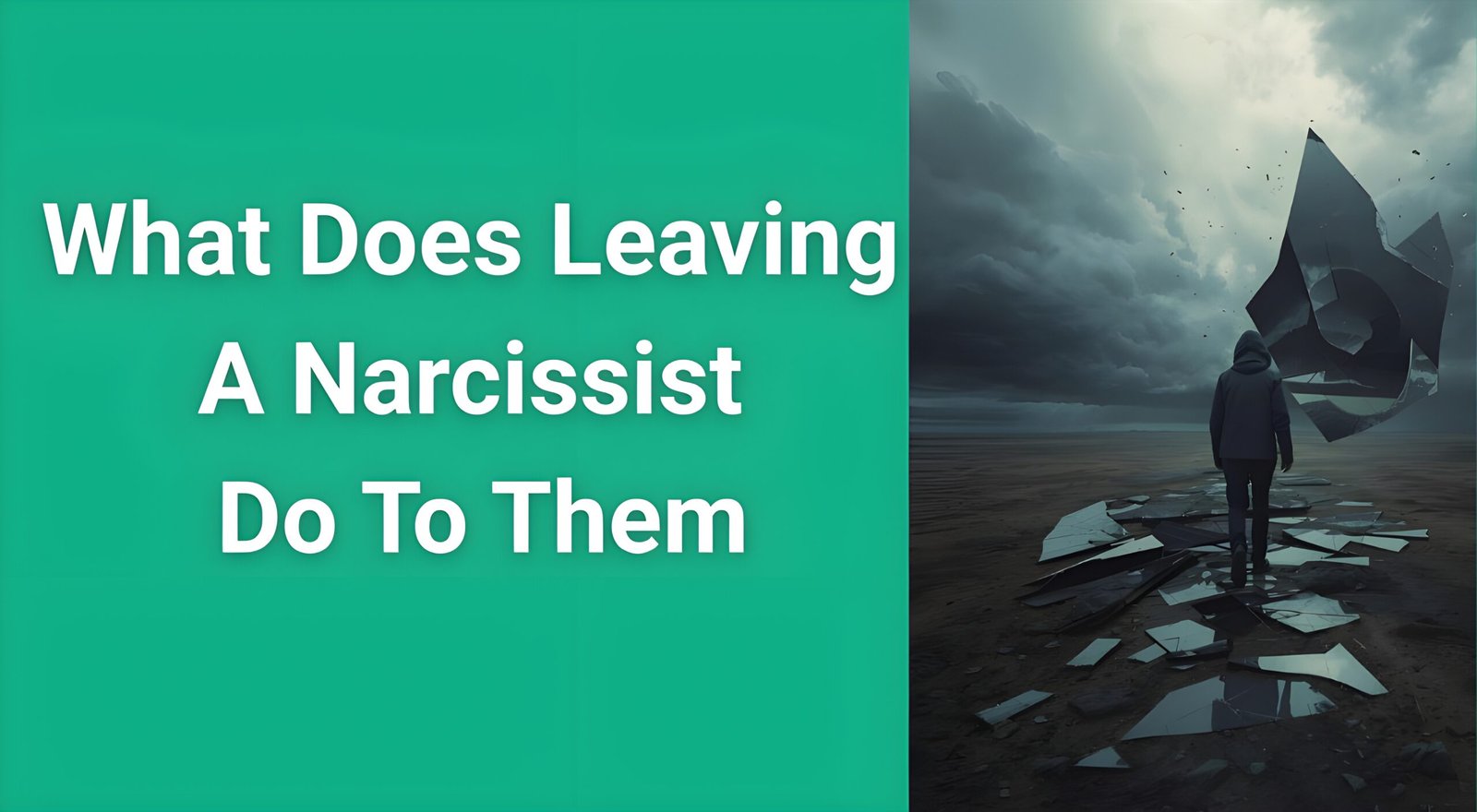The morning dread hits you again. That familiar knot in your stomach as you wonder what mood he’ll be in today. If you’re contemplating leaving a narcissist boyfriend, you’ve already taken the hardest step—recognizing that something is deeply wrong. The confusion, the walking on eggshells, the constant apologies for things that aren’t your fault—none of this is normal, and none of it is your fault.
- Why Leaving a Narcissist Boyfriend Feels Impossible
- The 12 Steps to Leave a Narcissist Boyfriend
- What to Expect After Leaving a Narcissist Boyfriend
- Red Flags That Confirm You’re Making the Right Decision
- When You Can’t Leave Right Now
- Professional Support and Resources
- Breaking Free from Trauma Bonds
- Frequently Asked Questions
- Conclusion
Leaving a narcissist boyfriend isn’t like ending a healthy relationship that simply wasn’t working. It requires careful planning, emotional preparation, and understanding of what you’re truly up against. This comprehensive guide will walk you through 12 essential steps to reclaim your freedom and build the life you deserve.
Why Leaving a Narcissist Boyfriend Feels Impossible
Before we dive into the action steps, it’s crucial to understand why breaking up with a narcissistic partner feels so incredibly difficult. You’re not weak, and you’re not crazy—you’re dealing with psychological manipulation that’s designed to keep you trapped.
Research shows that the cycle of abuse and intermittent kindness creates what psychologists call a “trauma bond.” This neurological attachment is actually stronger than healthy love bonds because it triggers your brain’s survival mechanisms. Your mind begins to believe you literally need this person to survive, even when they’re the source of your pain.
The Confusion Factor
Narcissists are masters at gaslighting—making you question your own reality. They’ll deny conversations that happened, minimize your feelings, and flip situations to make you the villain. After months or years of this treatment, many women find themselves completely disconnected from their own intuition and inner wisdom.
The Isolation Strategy
Most narcissistic partners systematically isolate their victims from support networks. Friends “wouldn’t understand,” family members are painted as toxic, and gradually, the narcissist becomes your only source of validation and social connection. This isolation makes leaving feel impossible because you’ve lost your support system.
The 12 Steps to Leave a Narcissist Boyfriend
Step 1: Document the Reality
Start keeping a private journal or voice memos documenting incidents of emotional abuse. Write down exact quotes, dates, and your emotional responses. This serves two purposes: it helps you maintain clarity about what’s really happening, and it provides evidence if you need legal protection later.
Store this documentation somewhere completely secure—a private email account he doesn’t know about, a trusted friend’s house, or a safety deposit box. Narcissists often go through phones and personal belongings.
Step 2: Rebuild Your Financial Independence
Financial control is a common narcissistic tactic. If you’re financially dependent on your boyfriend, start building your independence immediately:
- Open a separate bank account in your name only
- If possible, start saving money in small amounts he won’t notice
- Research local resources for financial assistance
- Consider side income opportunities you can pursue discreetly
- Gather all important financial documents (passport, social security card, birth certificate)
Step 3: Reconnect With Your Support Network
Narcissists work hard to isolate you, but those connections may be repairable. Start reaching out to old friends and family members. You might be surprised how many people have been waiting for you to contact them.
If you’ve lost touch with everyone, focus on building new connections:
- Join support groups for women in similar situations
- Consider online communities where you can maintain anonymity initially
- Connect with a therapist who specializes in narcissistic abuse
Step 4: Understand the Pattern You’re Breaking
Educating yourself about narcissistic abuse patterns serves two purposes: it validates your experience and helps you prepare for what’s coming. Learn about tactics like:
- Love bombing (excessive attention and affection early in relationships)
- Gaslighting (making you question your reality)
- Triangulation (bringing other people into conflicts to manipulate you)
- Hoovering (attempts to suck you back in after you try to leave)
Knowledge is power, and understanding these patterns removes their effectiveness.
Step 5: Create a Safety Plan
Leaving a narcissist can escalate their behavior, so safety planning is essential:
- Identify safe places you can go (friends, family, shelters)
- Keep emergency cash, important documents, and medications in an easily accessible location
- Have a phone charger and emergency contact list ready
- Consider changing your routines if he’s tracking your movements
- Trust your instincts about danger—if you feel unsafe, prioritize getting to safety immediately
Step 6: Prepare for the Emotional Manipulation
When you try to leave a narcissist boyfriend, he won’t simply accept your decision. Prepare yourself for:
The Apology Campaign: Suddenly, he’ll promise to change, go to therapy, and become the partner you’ve always wanted. Remember: if he was capable of sustained change, he would have done it by now.
The Victim Role: He’ll flip the script and make himself the victim of your “abandonment.” You might hear about how much you’ve hurt him or how you’re ruining his life.
The Rage Phase: When other tactics fail, expect anger, threats, or attempts to punish you. This is when your safety plan becomes crucial.
Step 7: Address the Trauma Bond
The trauma bond won’t disappear the moment you leave. In fact, the withdrawal from this addictive cycle can feel physically and emotionally overwhelming. This is normal and temporary.
Consider working with a therapist who specializes in trauma recovery. There are also evidence-based approaches like EMDR that can help rewire your brain’s response to trauma triggers. The goal is to break the neurological patterns that keep you attached to someone who hurts you.
Step 8: Plan Your Physical Exit
When you’re ready to leave, do it safely and strategically:
- Choose a time when he’s not there if possible
- Have trusted friends or family help you pack and move
- Don’t engage in long explanations or attempts to make him understand
- Be prepared to leave immediately if the situation becomes unsafe
- Consider having police escort you if you fear violence
Step 9: Implement No Contact
This is perhaps the most challenging but crucial step. No contact means exactly that—no phone calls, text messages, emails, or social media interaction. Block him on all platforms and resist the urge to check his social media.
If you share children or have legal/business ties, implement “Gray Rock” method—become as boring and unresponsive as possible while maintaining only necessary communication.
Step 10: Expect and Prepare for Hoovering
“Hoovering” refers to attempts to suck you back into the relationship. This might happen days, weeks, or even months after you leave. Common hoovering tactics include:
- Sudden declarations of love and promises to change
- Creating crises that “require” your help
- Using mutual friends to deliver messages
- Showing up at your work or home uninvited
- Threatening self-harm if you don’t return
Have a plan for how you’ll respond to these attempts, and stick to it no matter how convincing he seems.
Step 11: Rebuild Your Identity
After leaving a narcissist boyfriend, many women report feeling like they don’t know who they are anymore. This identity recovery is a crucial part of your healing journey:
- Reconnect with interests and hobbies you abandoned
- Spend time alone to rediscover your preferences and values
- Journal about who you were before this relationship
- Set small goals for yourself and celebrate achieving them
- Practice making decisions without seeking external validation
Step 12: Focus on Long-term Healing
Leaving is just the beginning of your recovery journey. Long-term healing involves:
- Working with a qualified therapist to process trauma
- Learning to set and maintain healthy boundaries
- Developing a strong sense of self-worth independent of others’ opinions
- Understanding your own patterns that might attract narcissistic partners
- Building a life filled with genuine, reciprocal relationships
What to Expect After Leaving a Narcissist Boyfriend
The aftermath of leaving a narcissistic relationship is rarely peaceful. Understanding what to expect can help you stay strong during difficult moments:
The Relief Phase: Initially, you might feel overwhelming relief and freedom. This is normal and beautiful—embrace it.
The Grief Phase: You’ll likely experience grief for the relationship you thought you had and the person you hoped he could become. This grief is valid, even though the relationship was unhealthy.
The Doubt Phase: Expect moments when you question your decision, especially if he’s love-bombing you or if you’re feeling lonely. This is when your documentation from Step 1 becomes invaluable.
The Healing Phase: Gradually, you’ll start to remember who you are outside of his influence. Your confidence will return, your intuition will strengthen, and you’ll begin to trust yourself again.
Red Flags That Confirm You’re Making the Right Decision
If you’re still doubting yourself, consider these questions:
- Do you feel like you’re walking on eggshells around him?
- Has he isolated you from friends and family?
- Do you constantly apologize for things that aren’t your fault?
- Does he refuse to take responsibility for his actions?
- Do you feel exhausted, anxious, or depressed more often than not?
- Has he threatened you or made you feel unsafe?
If you answered yes to any of these questions, you’re making the right decision by leaving.
When You Can’t Leave Right Now
Sometimes, leaving a narcissist boyfriend immediately isn’t possible due to financial constraints, housing issues, or safety concerns. If you’re in this situation, focus on:
- Building your resources and support network
- Documenting abuse for future legal protection
- Maintaining connections with trusted people
- Protecting your mental health as much as possible
- Working with professionals who can help you create an exit strategy
Remember: you don’t have to set yourself on fire to keep someone else warm. Your safety and well-being matter, and there are people who want to help you create a better life.
Professional Support and Resources
Healing from narcissistic abuse requires professional support. Consider working with:
- Therapists specializing in trauma and narcissistic abuse recovery
- Support groups for domestic abuse survivors
- Legal advocates if you need protection orders
- Financial counselors to rebuild your economic independence
If you’re ready to take the next step in understanding your situation, consider getting a professional analysis of your specific circumstances. Many women find that having an expert validate their experience and provide personalized guidance makes all the difference in their recovery journey.
Breaking Free from Trauma Bonds
One of the most challenging aspects of leaving a narcissist boyfriend is breaking the trauma bond that keeps you psychologically attached. This isn’t weakness—it’s a neurological response to cycles of abuse and intermittent reinforcement.
Breaking trauma bonds requires specific, science-based techniques that go beyond willpower alone. Many survivors find success with structured programs that address the neurological aspects of these addictive relationship patterns.
Frequently Asked Questions
Q: How long does it take to recover from leaving a narcissist boyfriend?
A: Recovery is individual and depends on factors like the length of the relationship, severity of abuse, and quality of support. Most people notice significant improvement within 6-12 months, with continued healing over years.
Q: Will he really change if I leave?
A: Narcissistic personality patterns are deeply ingrained and resistant to change. While anyone can theoretically change, it requires years of intensive therapy and genuine motivation—not just fear of losing someone.
Q: What if we have children together?
A: Having children with a narcissist complicates leaving but doesn’t make it impossible. Work with family law attorneys experienced in high-conflict cases and consider parallel parenting strategies.
Q: Is it normal to miss him after leaving?
A: Absolutely. Missing someone who hurt you doesn’t mean you made the wrong decision. It means you’re human, and your brain is withdrawing from the trauma bond.
Q: How do I explain this to friends and family who think he’s wonderful?
A: Narcissists are often charming in public. Share your documentation if you feel safe doing so, but remember that you don’t need anyone’s permission to protect yourself.
Conclusion
Leaving a narcissist boyfriend is one of the most challenging but necessary steps you can take for your wellbeing. The journey isn’t easy, but freedom is possible. You deserve relationships built on respect, genuine love, and mutual support.
Remember that healing isn’t linear, and recovery takes time. Be patient with yourself as you rebuild your life, and don’t hesitate to seek professional support along the way. You’ve already shown incredible strength by recognizing the problem and seeking information about solutions.
Your life can be beautiful again. You can trust your own judgment, feel peace in your relationships, and wake up without that familiar knot of dread. The woman you were before this relationship is still there, waiting to be rediscovered and celebrated.
Take it one day at a time, one step at a time. Your freedom is worth fighting for.






